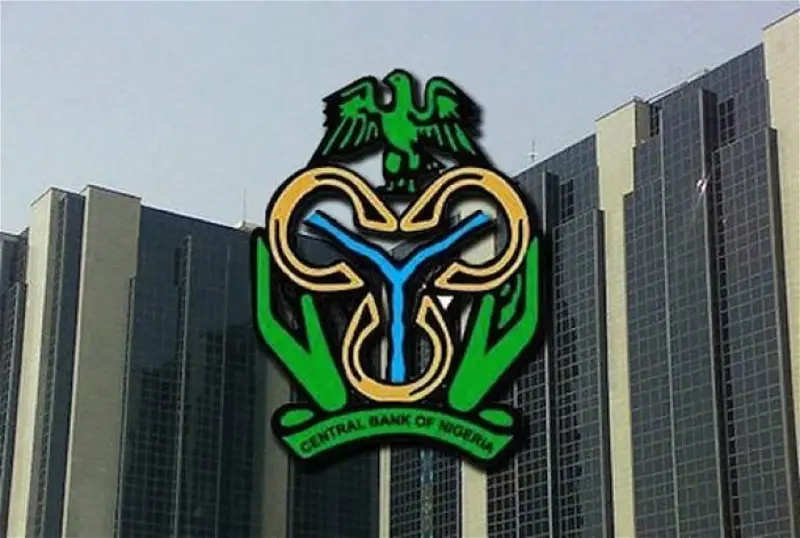
By Edu Abade
Deposit Money Banks (DMBs) and discount houses in Nigeria have borrowed N3 trillion from the Central Bank of Nigeria (CBN) through the Standing Lending Facility within a week, a report by Afrinvest Research revealed at the weekend.
The lenders and discount houses, however, deposited N493.6 billion with the apex bank through the Standing Deposit Facility (SDF) within the same period.
The report pointed out that the spike in borrowing resulted in a 4.7 per cent increase in system liquidity, which now stands at N712.3 billion, adding that the Standing Lending Facility (SLF) and SDF are tools used by the CBN to manage money supply and liquidity in the financial system.
The central bank issued a new directive to boost lending to the real sector, which took effect in April 2024, signaling a shift towards a contractionary monetary policy approach.
Recently, the Central Bank lifted the suspension on the Standing Lending Facility for authorised dealers, following a Monetary Policy Committee decision to adjust the upper corridor of the standing facilities to five per cent from one per cent around the Monetary Policy Rate.
Afrinvest added that the surge in borrowing reflected the increased demand for short-term liquidity by banks and discount houses.
Despite the liquidity boost, inter-bank lending rates displayed mixed results, with the Open Purchase Rate decreasing by five basis points to 31.2 per cent, while the Overnight Rate edged up by three basis points to 31.7 per cent.
In response to rising liquidity, the Debt Management Office reduced interest rates last week to create favourable borrowing conditions.
Also, Afrinvest Research reported the successful launch of Nigeria’s first dollar-denominated bond, aimed at raising $500 million to address the 2024 fiscal deficit.
The bond, with a five-year maturity, was oversubscribed by $400 million, pointing to strong investor demand.
Afrinvest analysts believed the interest rate cut and strong bond demand demonstrate growing investor confidence in Nigeria’s financial markets, adding that the developments are expected to influence market behaviour and borrowing strategies as liquidity continues to evolve.
Reacting to the development, an economist at the Ajayi Crowther University, Segun Ogundare, explained that central banks serve as lenders of last resort, usually offering short-term loans at high rates to banks facing liquidity constraints.
He noted that frequent borrowing from the central bank could indicate deeper issues, warning that persistent liquidity shortages could lead to serious financial challenges for banks, including potential liquidation, as seen in the case of Heritage Bank.
“Central banks typically lend at high rates because the loans they offer to banks are short-term. Banks can approach the Central Bank of Nigeria for different reasons. Maybe they are running low on liquidity or have over-traded and need to restore balance. They might also rush to the CBN to cover themselves or take advantage of opportunities in the money market.
“Sometimes, customers come in large numbers, and banks might find that more money is leaving than coming in. This can cause an imbalance. If this becomes a regular occurrence, it can become a big problem. If not handled properly, some banks could even go into liquidation, as we have seen with cases like Heritage Bank”, he added.
A broker and board member of Highcap Securities, David Adonri, noted that banks typically resort to borrowing from the CBN’s Standing Lending Facility to address temporary liquidity shortages or to seize short-term financial opportunities.
Adonri said system liquidity could rise whenever maturing short-term public debt is redeemed, Federation Account Allocation Committee (FAAC) funds are distributed, or deposit liabilities increase, noting that those actions inject funds into the banking system, which could elevate overall liquidity levels.
“CBN is a lender of last resort. Banks usually have recourse to SLF to borrow from CBN to meet temporary liquidity shortfalls or to finance emerging short-term opportunities. Whenever maturing short-term public debt is redeemed or FAAC is distributed or deposit liability increases, system liquidity can rise,” he stated.
Further maintaining that an increase in borrowing through the Standing Lending Facility could boost banking system liquidity in the short term, he cautioned that this could come at a cost to the banks, saying: “The interest obligation arising from such borrowing can harm a bank’s treasury if the on-lending does not cover the interest expenses.
“Moreover, the injection of large sums of money into the banking system within a short period may contradict the CBN’s policy goals.”
Adonri stressed that this could undermine the central bank’s efforts to raise the Cash Reserve Ratio and potentially neutralize contractionary monetary policies. On the apex bank’s control over bank liquidity, he said: “Bank liquidity is controlled by the CBN’s policy on liquidity ratio.
As the aggregate assets of banks increase, aggregate liquidity amounts also rise. Liquidity is a moving target.”
It would be recalled that commercial and merchant banks relied more heavily on the CBN for liquidity in 2023, with borrowings increasing by over 32.07 percent to N19.81 trillion compared to N15 trillion in 2022.











